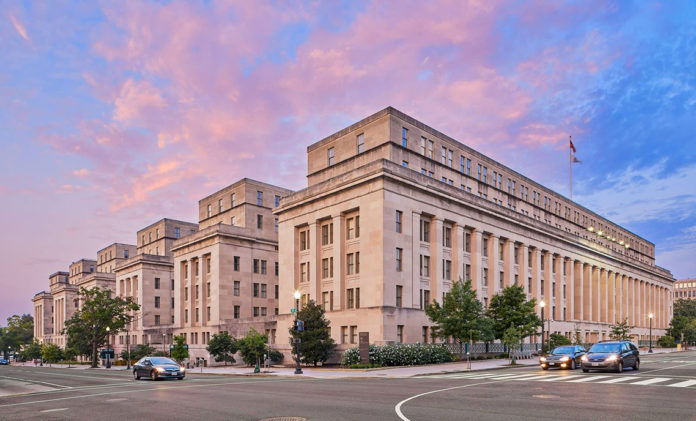WASHINGTON, D.C. – Secretary of the Interior Deb Haaland has announced $72 million from President Biden’s Investing in America agenda to help tribal communities electrify homes. This investment from the Inflation Reduction Act – the largest ever investment in climate – is a critical step toward the goal of electrifying all homes in the United States with clean energy sources and advances the Biden-Harris administration’s work to reach a carbon pollution-free electricity sector by 2035.
This first round of funding from the Office of Indian Affairs’ Tribal Electrification Program will provide financial and technical assistance to 21 tribes to connect homes to transmission and distribution that is powered by clean energy; provide electricity to unelectrified tribal homes through zero-emissions energy systems; transition electrified tribal homes to zero-emissions energy systems; and support associated home repairs and retrofitting necessary to install the zero-emissions energy systems. The program will also support clean energy workforce development opportunities in Indian Country.
“Every home deserves to have access to reliable, affordable electricity – and now, with historic investments from President Biden’s Investing in America agenda, we’re bringing much-needed resources to Indian Country to electrify homes with abundant clean energy sources,” said Secretary Deb Haaland. “As we implement this new and innovative program, we will continue to support tribal communities as they work to develop their electricity infrastructure and help meet our shared clean energy goals.”
Secretary Haaland made the announcement during a visit to the Hopi Tribe in Arizona, which is receiving $4.2 million through these awards. The visit comes as Secretary Haaland and Assistant Secretary for Indian Affairs Bryan Newland conclude a multi-day trip that included visits with the White Mountain Apache and the Pueblo of Zuni in New Mexico to highlight how historic resources from the President’s Investing in America agenda are supporting Indigenous communities.
“Indian Country’s revitalization and future depends on tribal households, schools and businesses having access to clean, reliable power,” said Assistant Secretary Newland. “The Tribal Electrification Program is important for providing tribes a much-needed boost to their efforts of closing the access-to-electricity gap in their communities.”
In 2000, the Energy Information Administration issued a report which estimated that 14 percent of households on Native American reservations had no access to electricity, which was 10 times higher than the national average. In 2022, the Department of Energy Office of Indian Energy issued a report citing that 16,805 total tribal homes were unelectrified, with most being in the Southwest region and Alaska. By recognizing that each tribe has its own energy- and electrification-related needs and implementation capacity, this program will meet the unique needs of individual tribal communities.
The Tribal Electrification Program also advances the Biden-Harris administration’s Justice40 Initiative, which was established by President Biden as part of his January 2021 Executive Order 14008, Tackling the Climate Crisis at Home and Abroad, and which set the goal that 40 percent of the overall benefits of certain federal investments flow to disadvantaged communities that have been marginalized by underinvestment and overburdened by pollution, including federally recognized tribal nations, which are recognized as Justice40 communities.
The 2024 grant recipients are:
| Tribe or Tribal Organization | State | Funding |
| Levelock Village | Alaska | $333,813 |
| Kootznoowoo, Incorporated | Alaska | $500,000 |
| Chickaloon Native Village | Alaska | $7,767,520 |
| Tanana Chiefs Conference | Alaska | $9,922,060 |
| San Carlos Apache Tribe | Arizona | $360,000 |
| Hopi Utilities Corporation | Arizona | $4,200,000 |
| Navajo Tribal Utility Authority | Arizona, New Mexico and Utah | $10,000,000 |
| Cachil Dehe Band of Wintun Indians, Colusa Rancheria | California | $250,000 |
| Santa Rosa Band of Cahuilla Indians | California | $250,000 |
| Yurok Tribe | California | $3,271,068 |
| Guidiville Rancheria of California | California | $3,552,350 |
| Shoshone Paiute Tribes | Idaho and Nevada | $525,000 |
| Prairie Band Potawatomi Nation | Kansas | $305,000 |
| Iowa Tribe of Kansas and Nebraska | Kansas | $9,400,000 |
| Bois Forte Band of Chippewa | Minnesota | $295,000 |
| Prairie Island Indian Community | Minnesota | $500,000 |
| Red Lake Band of Chippewa Indians | Minnesota | $600,000 |
| Pueblo of Santa Ana | New Mexico | $14,500,000 |
| Rosebud Sioux Tribe | South Dakota | $1,000,000 |
| Quinault Indian Nation | Washington | $3,650,000 |
| Eastern Shoshone Housing Authority | Wyoming | $1,000,000 |
| Total | $72,181,811 |
A second round of funding availability is expected to be announced in the spring of 2024.













































